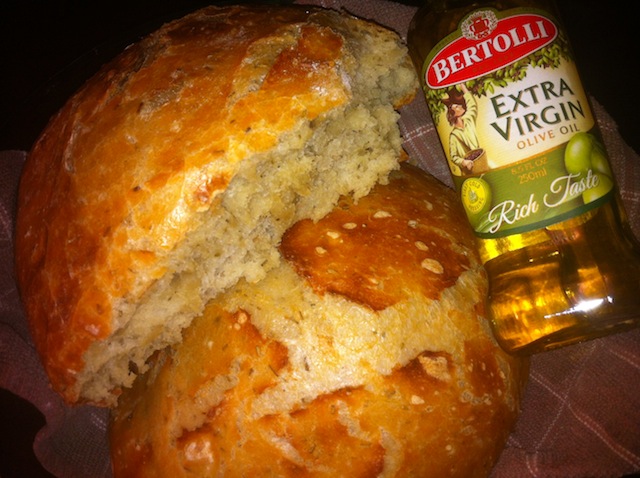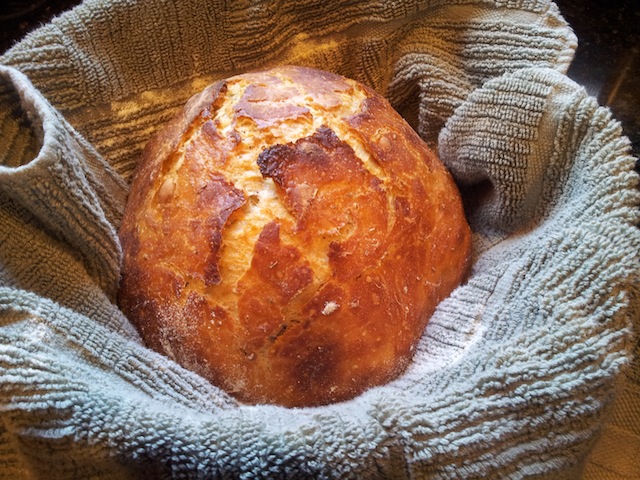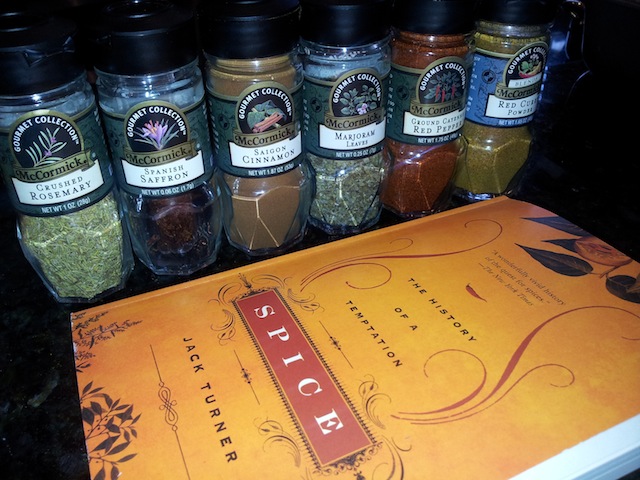Joshua Kennon is a Managing Director of
Kennon-Green & Co., a private asset management firm specializing in global value investing for affluent and high net worth individuals, families, and institutions. Nothing in this article or on this site, which is Mr. Kennon's personal blog, is intended to be, nor should it be construed as, investment advice, a recommendation, or an offer to buy or sell a security or securities. Investing can result in losses, sometimes significant losses. Prior to taking any action involving your finances or portfolio, you should consult with your own qualified professional advisor(s), such as an investment advisor, tax specialist, and/or attorney, who can help you consider your unique needs, circumstances, risk tolerance, and other relevant factors.
After working through several types of bread recipes, I am going to share with you one of the more popular, easier dinner breads we’ve made. It comes from an adaptation of a famous no-knead recipe published in The New York Times. In our tests, it performed very well and requires almost no effort, a handful of ingredients, and can serve as a very easy introduction if you’ve never baked a loaf of bread in your life. It should not be intimidating for you, even if you haven’t turned on an oven in years.
Update: This post originally covered a 25-year investment case study of General Mills. Since I am publishing it a few days into the new year, we can look at an additional year of data (all of fiscal 2012) so I modified the figures and compound annual growth rates to account for that extra year, stretching…
This is a mail bag question about the process I use to organize my kitchen and other things in general. Joshua, I love the food posts! I don’t understand how you experiment and find new recipes. What is your process? Tracy V. Like most things in my life, I build a system, adhere to it,…
There seems to be a misconception that ragtime music died along with the western saloons and brothels in which it reached its fruition. That isn’t true. If you grew up playing Nintendo, you may not even realize that you are a huge ragtime fan. You know dozens of ragtime hits and hearing them will probably…
Patti Page just died. If you are a member of my generation or younger, the odds are overwhelming that you have no idea who Patti Page was. In the 1950’s, she was the third best selling artist of the decade and had lifetime album sales exceeding 100,000,000 records. Given the lower population base back then, and the limited distribution channels, she was a far bigger cultural force in her generation than someone like, say, Beyoncé Knowles or Kayne West is today. Her song, “Tennessee Waltz” was the third best selling song of all time. Very few people I know even recognize the song today, let alone could sing it.
I’m reading a book called Spice: The History of a Temptation by Jack Turner. As the review said, “There was a time, for a handful of peppercorns, you could have someone killed. Throw in a nutmeg or two, you could probably watch. There was a time when grown men sat around and thought of nothing but black…
A few hours ago, I finished writing a piece about global investing through a Roth IRA, which was published to the About.com network. It got into some of the complexities of foreign investing, including the differences between share classes domiciled in various markets and currency translations. As I was thinking about whether there was anything…
I’ve noticed an array of articles exclaiming that savings bonds, including both the Series EE savings bonds and the Series I savings bonds, beat stocks over the past ten or fifteen years. Nearly every time I make my way into one of these essays or news stories, I just shake my head because the surprise displayed by the men and women penning these pieces indicate a complete lack of competence. Those of you who have any experience managing money or with history immediately know my objective: No asset class, per se, is sacrosanct. What matters is the price you pay for the asset relative to how much underlying cash it generates.
For water to freeze, it must reach 32 degrees Fahrenheit. For water to boil, it must reach 212 degrees Fahrenheit. The question: Which freezes faster: Room temperature water (say, 75 degrees Fahrenheit) or boiling water (212 degrees Fahrenheit)? The common sense answer would be room temperature water would freeze faster because it is only 43…
Radical simplicity. The phrase that has been on my mind, constantly humming in the background almost ceaselessly, for the past three or four weeks is “radical simplicity”. It’s the last thought on my mind when I fall asleep at night, and the first thing I think about when I wake up.








